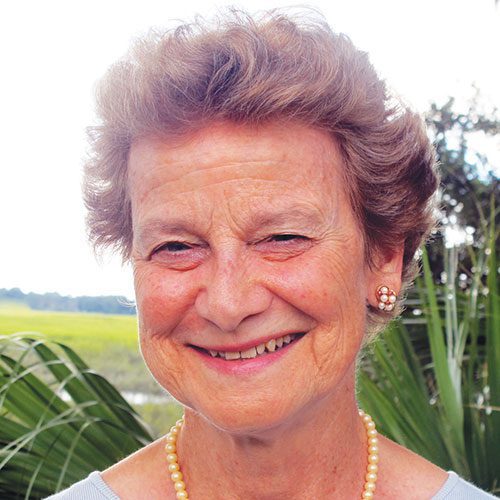 Though it has existed since the beginning of time, this particular word is way too prevalent these days. It’s likely touched your life in some way that you may – or may not – be aware of. The word is “loss.” A number of losses that are obvious can result in feelings of grief, overwhelming sadness, and physical maladies. They may even spark major life changes. Others are not necessarily recognized as such and though insidious, can evoke the same responses.
Though it has existed since the beginning of time, this particular word is way too prevalent these days. It’s likely touched your life in some way that you may – or may not – be aware of. The word is “loss.” A number of losses that are obvious can result in feelings of grief, overwhelming sadness, and physical maladies. They may even spark major life changes. Others are not necessarily recognized as such and though insidious, can evoke the same responses.
Heading the list of obvious creators of loss in 2020 is, of course, the Covid pandemic, which still surrounds us, often governing at least parts of our days. The fat lady has not even begun warming up for an end to this virus and probably won’t for some time yet, despite pie-in-the-sky promises of a vaccine next month.
So far, Corona counts among its human numbers people of all ages from babies to great-grandparents, family members, friends, coworkers, medical and emergency workers, et al. Its overall devastation includes jobs and the job market, counted-upon income, trust that there will be enough time for life to be lived to your planned fullest; the freedom to do what you want, when you want, and with whom you want; concerts, choirs and in-person church services; greatly-anticipated vacations, college and college years abroad; baby showers and weddings; graduation, festivals, and birthday celebrations; non-virtual meetings, in-person USCB OLLI classes, girlfriend getaways, seeing folks’ entire faces, being with a loved one at their end-of-life for comfort and final good-byes, and alas, even funerals. Those last two are so sad.
As can be a loss of innocence. If you adhere to Christian beliefs, Eve’s eating the apple of knowledge was one example. And what can a cross symbolize? Loss. Good Friday still represents a mourning of that loss. One followed by an Easter rebirth. Many people are using Covid, especially when sheltering-in-place (some still are isolating) as an opportunity for rebirth, for a clean slate, a do-over. Maybe you’ve already addressed this. What a remarkable time for reflection this can be. Does your life look as you’d like for it to? If not, consider changes – no matter how small – that you might make now.
Tongue-in-cheek I’ll add to that list of loss-generators, not knowing what day of the week, month, or year it is. Rumor has it I’m not alone in that issue.
As for the not-so-obvious losses . . . oddly enough, a number of situations that create those feelings may be lodged in your mind and your heart, aren’t necessarily thought of in that light, and consequently, may be overlooked as such.
Do you listen to the news? You don’t have to think too hard about that blast of “information” to realize that daily news is a constant retelling of loss, a reminder that all isnot well. As if we needed one. But you might not have been cognizant of the details. Of a rise in the latest Covid numbers, fatal accidents, terrorist bombings, issues of global warming. The news makes sure you stay fearfully informed, to some degree.
And there’s the political situation, which seems to change from hour to hour, usually not in a positive direction. I’d so rather listen to a candidate for office talk about how he or she will improve a town, state or country if elected, rather than my having to withstand interminable mudslinging aimed at an opponent. As a visualizer, I tend to “watch the movie” in my head for way longer than one reporting if I listen to the news, most of which these days is downright depressing.
New York Times bestselling author Pam Grout’s words of wisdom resonate for me: “Watching the news is like pinning a ‘Please Kick Me’ sign on your back!”
As does a quote from New Thought minister and author Michael Beckwith: “If you’re watching the news more than praying, you’re in trouble.”
Whether or not you concur, I challenge you to turn off the news for 24 hours. Focus on your own life and uplifting ways to spend your time. For a whole day and night. Just try it. If those tiny red-or-blue-light-producing, cool tech toys happen to be in your bedroom, unplug those pups. They’ll still be there the next day and chances are, you’ll get a more peaceful night’s sleep. You might go even farther by putting your phone in a different room and not by your bedside. Oooh . . . that’s a big one!
A wise friend of mine who served in Special Forces in Vietnam says that PTSD is always about loss of some kind, whether of innocence, trust, a limb or limbs, the life of one or more buddies while in-country. Or all of those issues. Loss, he says, is like a bomb goes off in your brain and the memory itself spreads across all regions of the mind, coloring many events that follow, especially those that are fear-provoking. Though he’s had good help with PTSD, he can still be triggered when driving a car in heavy traffic, when in a crowd, when there’s a loud noise, or if a situational memory pops up. Feelings of fear, anger and/or loss can roll right back in. Loss, he says, is the key to PTSD, which can become an ingrained habit that can take time and work to dispel.
Those reactions can apply to a survivor of any type of situation that might cause PTSD, such as the passing of a loved one, a violent crime, a crippling accident, a natural disaster, sexual trauma, and physical, emotional or verbal abuse.
While taking a walk in the cooler autumn sunshine this afternoon, I happened to tune in to a podcast of an exceptional NPR show called “On Being,” which airs from 7 to 8 a.m. on Sundays. As the Universe would have it, this particular episode centered on loss, and featured a musical group called Craig Minowa and Cloud Cult. Turns out that talented songwriter Craig and his wife Connie lost their first child to crib death when the boy was but two. That horrendous loss inspired Craig’s lyrics to go deep. He used “music as medicine” for his grief. Ever since, his words have become inspiring, highly-intentioned, life-affirming truths – blended with a lot of quantum physics – that speak to universal experiences in understandable ways. Those verbal images allow Cloud Cult to connect with their fan base in ways that speak personally to loss, to hope, to healing, to recovery. Here’s an example.
“I’m done being stupid and worried and dramatic.
I lay down my every disguise.
So if ever I can’t see the magic around me,
Please take my hands off my eyes.”
– Craig Minowa
The musician himself admits that the type of music his band produces is tough to pigeonhole. It seems part Native American, part rock, part folk, while the singer’s voice comes across as plaintive, a bit scratchy in a kind of “this man’s been around” way, and full of messages that bring deep thought and comfort. They can grow on you quickly and just might take an edge off your own loss.







